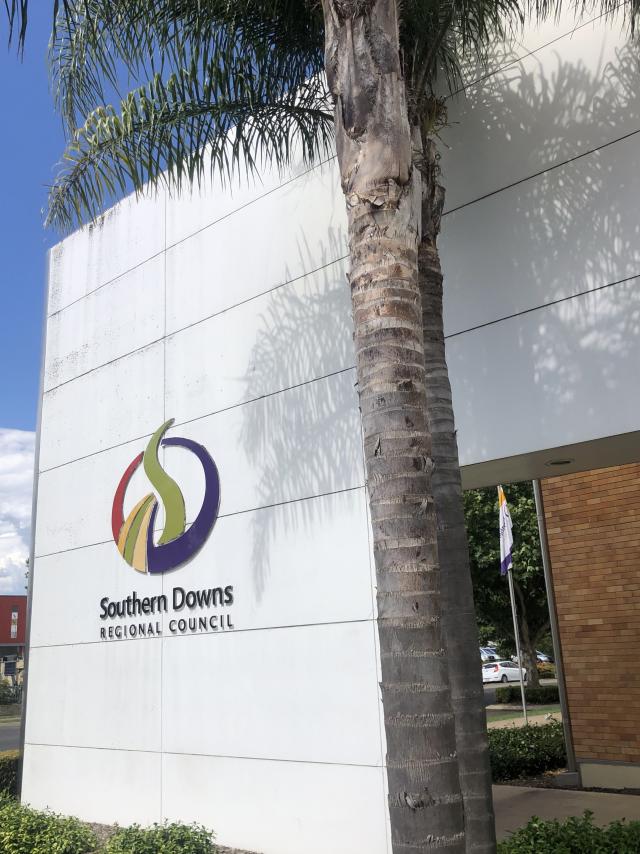
By Jeremy Cook
An election proposal to freeze rates for more than 4500 Southern Downs residences has drawn a mixed response from candidates running in this week’s council election.
In seeking election to Southern Downs Regional Council, candidate Joel Richters said he would vote to freeze the general minimum rate for all ratepayers currently paying council’s minimum residential rate amount of $1255.
The proposal, announced by Richters in late-February, formed the basis for a raft of policies aimed at addressing cost of living pressures.
Warwick Stanthorpe Today approached all council candidates for comment on the proposal as well as their thoughts on how to address cost of living pressures.
Incumbent councillor Stephen Tancred, who is seeking re-election for a second term on the council, returned by far the lengthiest response which criticised the proposal for relying on “unfounded assumptions”.
“His aim is admirable. He wants to reduce rates for people with the biggest cost of living pressures,” Tancred said.
“But how does he know who these people are? He has assumed people paying the minimum rate have low incomes,” he said.
“There is no direct correlation between household income and rates.
“Some 30 per cent of Australians rent and a rate freeze would benefit the landlord, not the renter.”
In proposing the policy, Richters acknowledged his position would need testing by council officers while any savings would need to be offset with new revenue. He proposed additional revenue could be drawn from “properly rating short term accommodation homes” such as Airbnb.
“To maintain council income and keep the show on the road this will mean a cross subsidy from the other 76 per cent of ratepayers,” Tancred said
“How do the 76 per cent feel about that?”
Mayoral candidate Melissa Hamilton said rate increases could be minimised if council operated diligently.
“Rate increases will be minimised if council operates within budget, finds savings, avoids waste, identifies new sources of income, and, importantly, fosters a healthy workplace culture,” Hamilton said.
“Last year’s rate hikes due to land valuation increases were substantial for many ratepayers, with some residents’ rates bill doubling,” she said.
“If elected mayor, I will scrutinise how rates are determined during the forthcoming annual budget process and, to cushion rate increases, will look to implement ‘averaging’ of land valuations over three years and ‘rate capping’ to help minimise the impact of large valuation increases.
“I would not support an above CPI increase for the general minimum rate.”
Incumbent Mayor Vic Pennisi said claims of fair rates had to be fair for all.
“This ‘promise’ isn’t fair to all,” Pennisi said.
“Freezing the minimum general rate for a small, select group, has to be offset by rate increases elsewhere,” he said.
“This ‘promise’ could raise rates by one per cent or more for everyone else.
“Candidates sometimes make promises that can only be delivered if they can get support from their colleagues.
“So when a candidate makes a claim like ‘freezing rates for a small selection of the community’ they don’t say how they will pay for that.”
Mayoral candidate Lindsay Goodwin said he did not want to spend time on the proposal but said he was prepared to “look with due diligence at any proposals put up that will ease the housing crisis and cost of living pressures”.
“Increasing rates on short term rentals will increase rental costs and discourage people from going into Airbnb and such like,” Goodwin said.
“I believe we require more of this type of accommodation to support our local tourism and festivals.
“These people bring a lot of income into local businesses.”
Several other candidates agreed that rising rates and cost of living were an issue which needed attention, though were mostly hesitant to commit their support to the proposal.
Nick Suduk said he was “in favour of freezing all rates and levies” currently in place without introducing any new levies, while Sheryl Windle was “open to discussing” ways to provide “much needed rate relief”.
Kelvin Johnston said he supported “capping further rate rises” and incumbent Andrew Gale pointed to rate increases kept below CPI in the council’s previous three budgets as proof of his commitment to “keeping rates under control”.
Russell Wantling expressed support for keeping rate rises at or below CPI and agreed that freezing minimum general rates for residential homes sounded “great in theory”, but like incumbents Cameron Gow and Ross Bartley, questioned its impact on other ratepayers.
“If you reduce rates, fees or charges in one area; than you end up having to impose higher charges in other areas to make up the budget shortfalls,” Bartley said.
Gow said he would like to explore “freezing or giving further consideration to fees and charges” if re-elected.
Incumbent Cynthia McDonald said the impact of future rate rises needed careful consideration and acknowledged its effect on pricing rental properties “beyond the reach of many families”.
Brett Tunbridge argued rates fixed to CPI “can only be reduced with reduced economic activity”, while Noel Grosskopf wanted to “get rid of unnecessary debt” to free up funds to reduce rates.
Morwenna Harslett commended Richters for his stance, but said “it would be foolish for me as a newcomer to make comment on these proposals without taking some time to learn and understand the current budget and its implications”.
Candidates Sarah Deane, Marika McNichol and Carla Pidgeon were contacted for comment but did not respond. Dave Thompson was unable to respond by deadline due to work commitments and personal reasons.






